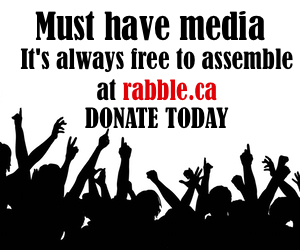This Monday representatives of nearly 200 nations assembled in Durban, South African for the first day of the next major round of international climate negotiations under the United Nations Framework Convention on Climate Change (UNFCCC). These talks are aimed at co-operatively taking action to limit global temperature increases and cope with existing and unavoidable impacts of climate change.
Climate change: An international issue
Climate change is one of the most pressing issues of our time. While climate science continues to evolve our understanding of climate change, what is crystal clear is that climate change is unfolding quicker than anticipated. 2010 was the warmest year on record in Canada and the world. The increasingly frequent and more extreme weather we’ve seen in 2010 and 2011 is consistent with what we’ve been warned of. In Canada, some of the profound impacts of climate change will be associated with accessing drinking water and maintaining healthy watersheds, extreme weather events and Prairie droughts affecting agriculture. According to the Stern review, without action, the overall costs of climate change will be equivalent to losing at least 5 per cent of global gross domestic product (GDP) each year, now and forever.
Climate change does not respect borderlines. In fact, it is a cruel irony that those suffering the worst ravages of climate change in the Global South (a person in a developing country is 79 times more likely to experience a climate disaster than a person in a developed country) and Arctic regions have contributed least to greenhouse gas emissions. While the need for international action is undeniable the reality is that these UN talks have been on a downward trend since the 2009 talks in Copenhagen. This is where we began to see a shift to a more voluntary, pledge-based system and a growing focus on flawed market-based solutions.
The role of the Canadian government at UN climate talks
The Canadian government has consistently been on the wrong side at these UN climate talks. Rather than fulfill our commitments under the Kyoto Protocol and play a constructive role towards a binding international agreement that advances climate justice, our government has acted in the interests of Big Oil. Canada was the only country to return from the Copenhagen talks (2009) and actually increase our emission reduction target to allow for more greenhouse gas pollution. We also have no plan to meet this target. Canada is also helping to kill the good aspect, the binding emission reduction targets, of the only legally binding agreement on climate change, the Kyoto Protocol (which certainly has it flaws) by refusing to sign a second commitment period. In fact, it is this stance that provoked an uncharacteristic (but welcomed) criticism of our government by the South African high commission of Canada in the Globe and Mail: “Are you going to follow the United States, are you also going to become a serial non-ratifier of any agreements?” asked Mohau Pheko, the South African high commissioner to Canada, in an unusually harsh criticism. “Why take a moral high ground before, on the issue of the environment, and suddenly do an about-turn now?” she asked in an interview with the Globe and Mail.
What we need for climate justice
To begin with, we need countries in Durban to agree to a second commitment period under the Kyoto Protocol. While this agreement is flawed — it includes market based solutions such as carbon trading and carbon offsets as mechanisms to reduce emissions — a second commitment period is about countries submitting emission reduction targets to a legally binding international agreement. This is a key demand of Global South countries heading into the Durban talks.
We need a shift at the UN climate talks. We need commitments to deep emission reductions that help keep temperature rise below 2 degrees and as close to 1 degree as possible. We need climate financing for Global South countries that must not be in the form of debt-creating instruments and channelled through a democratic and accountable global fund independent of other international financial institutions such as the World Bank. We need to phase out flawed market-based solutions such as carbon offsets and carbon trading and market-based approaches to forests, soil and water, large-scale geo-engineering under the UN which allow for business as usual to reign.
There are real, tangible solutions to the climate crisis that advance equity, that will help countries such as ours reduce emissions and take steps towards a transformation to a system based on equity, science and the rights of people to live in harmony with and respect nature. These include examples such as policies that limit fossil fuel exploitation, supporting a global financial transaction tax, policies to expand renewable energy use and improve energy conservation and energy efficiency and food sovereignty measures. To learn more about climate justice, read our new fact sheet.
Council of Canadians follows Durban talks
The Council of Canadians is tracking the UN climate talks. We are part of a “home team” of Ottawa-based organizers in communication with Canadian allies in Durban, ready to respond to Canadian government actions and international calls for solidarity. I will be regularly blogging about the climate talks.
We also firmly believe that, in the current political context, we must also take action in our communities across the country to advance climate justice. There are already a number of campaigns underway to challenge local polluters and promote real solutions to climate change in Canada, find out more here. Learn more about local solutions here. A number of our chapters are also using the opportunity presented by the talks to host System Change teach-ins, to find out more, visit systemchange.ca.



